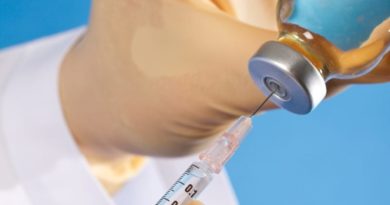
The role of pharmacists in prevention and vaccination policies
The COVID-19 pandemic took a devastating impact for public health and people’s wellbeing, with a high number of deaths and lifelong consequences on the citizens quality of life. Despite the fact that the pandemic is now over, lessons must be drawn from this period, learning from it, and using it as an opportunity to improve preparedness and response of the healthcare system to address current and future challenges. Furthermore, there is a strong and urgent need to reinforce and strengthen Europe’s healthcare systems and act swiftly. European community pharmacists welcome a revision of the EU general pharmaceutical legislation as a tool to help ensuring Europe’s supply of safe and affordable medicines to meet patients’ needs and to support the financial sustainability and the resilience of health systems.
There is a need to move from a hospital centred care to a patient centred care, monitoring and treating patients as close to their home as possible. This means investing more in primary care. According to Eurostat, on average in the EU, only 2.8% of public and private health expenditure is invested in preventive care.1
Academics, policy makers and international institutions have repeatedly stressed that investing in primary care pays off: with undeniable evidence clearly indicating that it reduces hospitalization rates, prevents unnecessary emergency rooms visits and ultimately saves lives and money.2
Before, during, and after the pandemic, the pharmacies network near people’s homes has been playing a vital role in supporting local communities and ensuring their continued access to medicines and care. Expanding the scope of practice beyond the traditional supply of medicines, pharmacists provide pharmacy services to the population, with added value to the healthcare system. Pharmacies have been accessible nonstop, even during lockdowns, and in many regions, especially in rural areas, community pharmacies were the only healthcare service available to local communities. Pharmacies have been the first line of advice, treatment, and referral on common ailments, successfully preventing unnecessary visits to emergency rooms, whilst being structurally involved in influenza and COVID-19 vaccination and testing strategies.
Across Europe, community pharmacists contribute in meaningful ways to vaccination campaigns. During COVID-19, pharmacists were involved in the supply management tasks and vaccines preparation in e.g., mass vaccination centres, the distribution of vaccines to care structures and providing reliable and understandable information and advice to the general public, but also vaccinating.
Currently pharmacists are able to vaccinate against flu, COVID-19 or other diseases in 14 countries. In particular, pharmacists have also often been the first trusted source for patients to address questions around the safety and effectiveness of vaccines.
With countries putting efforts to recover after the pandemic, Europe cannot afford to continuing putting on hold disease prevention and health promotion, especially when facing the challenge of rapidly ageing societies. European community pharmacists are committed to taking up the challenge and remain in the front-line against fighting infectious diseases, providing their communities with timely access to treatments, reliable information, performing rapid tests and vaccinating. Furthermore, pharmacists are also ready to use their knowledge and expertise to provide more efficient and more effective care to patients.
The wide array of community pharmacies interventions on COVID-19 demonstrates the highly reactive and adaptive character of pharmacies in response to the pandemic. The 400.000 community pharmacists across Europe, through the network of 160,000 community pharmacies near people’s homes, are eager to reinforce the delivery of core pharmacy services and to go even further, assuming new responsibilities through advanced pharmaceutical services, proven to improve people’s quality of life and health systems’ sustainability. This should be encouraged by national governments by adequately remunerating community pharmacists for the services they provide. We should use this opportunity to make health systems stronger, more resilient, and more responsive to patients’ needs. New models of care delivery should be defined, which involve multi-professionals’ teams working seamlessly, to ensure continuity of care, especially for patients with chronic conditions.
Interprofessional collaboration and increased investment on disease prevention and health promotion measures are also key to improve health outcomes.
Community pharmacy has demonstrated its value for patients and healthcare systems and is ready to further expand this contribution as part of sustainable and resilient collaboration models with other healthcare professions in the community.
Community pharmacists believe that governments should work towards making health systems stronger, more resilient, and more responsive to patients’ needs. This can happen through expanding the scope of community pharmacy practice to maximise their contribution to patients and health systems in ensuring continuity of care and treatments, increasing vaccination coverage and offering an accessible first line of advice, consultation, screening, treatment and referral on common ailments to patients. Recognising the value of pharmaceutical services that have proven to improve people’s quality of life and health systems’ sustainability can be done by adequately remunerating community pharmacists for the services they provide.
Finally, the reform of the Pharmaceutical Legislation is a key opportunity to develop the resilience of health systems – focusing on critical aspects such as medicine shortages and the security of the supply chain, fighting antimicrobial resistance and ensuring access to medicines across the European region.
________________________________
1https://ec.europa.eu/eurostat/web/products-eurostat-news/-/ddn-20210118-1




